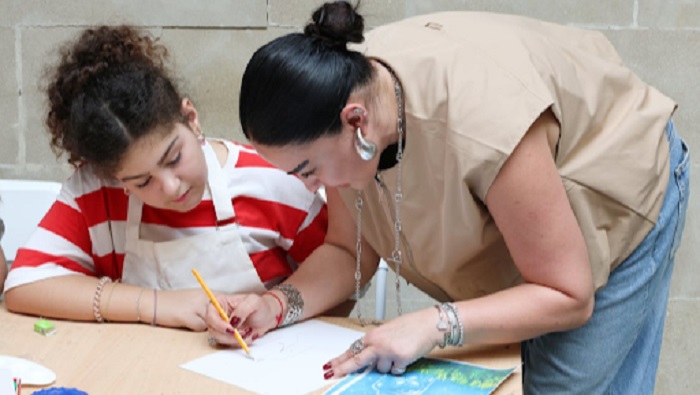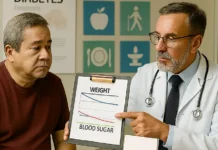Watching a loved one change in ways you do not quite understand can be deeply unsettling. Substance addiction rarely appears overnight. It often develops gradually, starting with subtle shifts in behaviour that may seem harmless at first. Recognising the early signs can make a big difference in helping someone get the support they need before the problem worsens. Whether the addiction involves alcohol, prescription medication, or illicit drugs, spotting the red flags early allows family members and friends to intervene with compassion and care. Knowing about some early signs can help with that.
Early Signs of Addiction
Behavioral Changes
One of the first indications that something may be wrong often shows up in behavior. A person might start avoiding family gatherings, spending more time alone, or becoming unusually secretive about their whereabouts and activities. Friends and loved ones may notice that they no longer engage in hobbies they once enjoyed or that their responsibilities at work or school are slipping. These subtle shifts can be easy to dismiss at first, but when viewed together, they often signal the beginning of deeper struggles with substance use.
Physical Changes
Addiction frequently leaves visible traces on the body. Sudden and unexplained weight loss or gain can raise concern, as can persistent bloodshot eyes, changes in sleep patterns, or a general decline in hygiene. Certain substances may also produce specific symptoms, such as frequent nosebleeds from stimulant misuse or shaking hands linked to alcohol dependence. Over time, these physical changes become harder to ignore and often serve as a crucial warning sign for family members.
Emotional and Psychological Signs
Just as addiction takes a toll on the body, it also impacts mental health. Loved ones may notice sudden mood swings, irritability, or bouts of anxiety and depression that seem out of character. In some cases, people may become defensive or evasive when asked about their habits, which can further strain relationships. The emotional turbulence not only affects the individual but can ripple outward, creating confusion and worry within the family.
Financial or Legal Trouble
Maintaining an addiction often comes with significant financial costs. People may begin borrowing money more frequently, selling personal possessions, or struggling to cover everyday expenses. In more advanced cases, legal issues such as charges for driving under the influence, possession, or other risky behaviors may surface. These legal battles can spiral into more trouble.
Changes in Daily Functioning
As addiction progresses, its impact on daily life becomes more pronounced. Work or school performance may decline significantly, and absenteeism can increase. Unsafe behaviors, such as attempting to drive while intoxicated or neglecting important obligations, are also quite common. This deterioration in everyday functioning is often one of the most visible consequences, alerting others that professional help may be urgently needed
How to Offer Help in the Early Days
Approach with Empathy
When a loved one shows signs of addiction, your first instinct may be to lecture or pressure them to stop, but this approach often pushes people further away. Addiction carries heavy stigma, and those struggling may already feel ashamed, isolated, or victimized. A better way to reach them is through empathy. Use language that communicates care rather than blame, and let them know you are there to listen. Simple statements like “I’ve noticed some changes that worry me, and I want to support you” can create an opening for honest conversation. Listening without judgment helps build trust and shows them that they do not have to go through the situation alone.
Encourage Professional Support

Supporting someone through addiction is not a task that one person can or should handle alone. Building a support team is crucial, both for the individual and for those close to them. Professionals who have completed a chemical dependency counselor certification online can provide structured guidance and strategies to manage addiction, while doctors can assess any related health issues. Involving sympathetic family members or friends helps share the emotional weight so that no single person feels overwhelmed. Encouraging your loved one to reach out to professionals also reinforces the message that recovery is possible and that help is available from people trained to provide it.
Suggest Practical Resources
The earlier someone connects with support services, the better their chances of recovery. Pointing them toward practical resources such as hotlines, therapy, and support groups can make the first steps less daunting. Programs like Alcoholics Anonymous (AA) or Narcotics Anonymous (NA) offer peer support and accountability, which can be powerful motivators. Family therapy is also valuable, as it helps loved ones learn how to communicate more effectively and manage the challenges that addiction brings into a household. Having access to these resources gives both the individual and their family a clearer roadmap through what can otherwise feel like an overwhelming situation.
Establish Boundaries
Compassion does not mean ignoring harmful behaviors. It is important to distinguish between supporting recovery and enabling addiction. Setting boundaries around finances, responsibilities, and living arrangements can prevent patterns that make it easier for the addiction to continue. For example, refusing to cover unpaid bills or allowing repeated disruptions in the home sends the message that harmful actions have consequences, while still leaving room for support in healthier ways. Establishing boundaries not only protects the family from burnout but also helps the individual see the need for change. Balancing care with clear expectations often makes support more sustainable in the long run.
Addiction may feel overwhelming, but families are not powerless. By learning the signs, approaching loved ones with compassion, and encouraging early intervention, you can make a meaningful difference. The path to recovery is rarely straightforward, but with the right mix of professional help, medical guidance, and family support, healing is possible.




















